Dungeons & Dragons (D&D), a cornerstone of immersive gaming, recently celebrated its 50th anniversary, marking half a century of captivating players worldwide. This game has not only revolutionized the gaming community with its rich, imaginative worlds and complex characters but has also woven itself into the fabric of gaming culture. Through its blend of storytelling, strategy, and creativity, D&D has become more than just a game; it’s a conduit for life lessons, personal growth, and community building. As we commemorate this milestone, let’s explore 50 life lessons that playing D&D can teach its players.
Lesson #1: Empathy Through Role-Playing
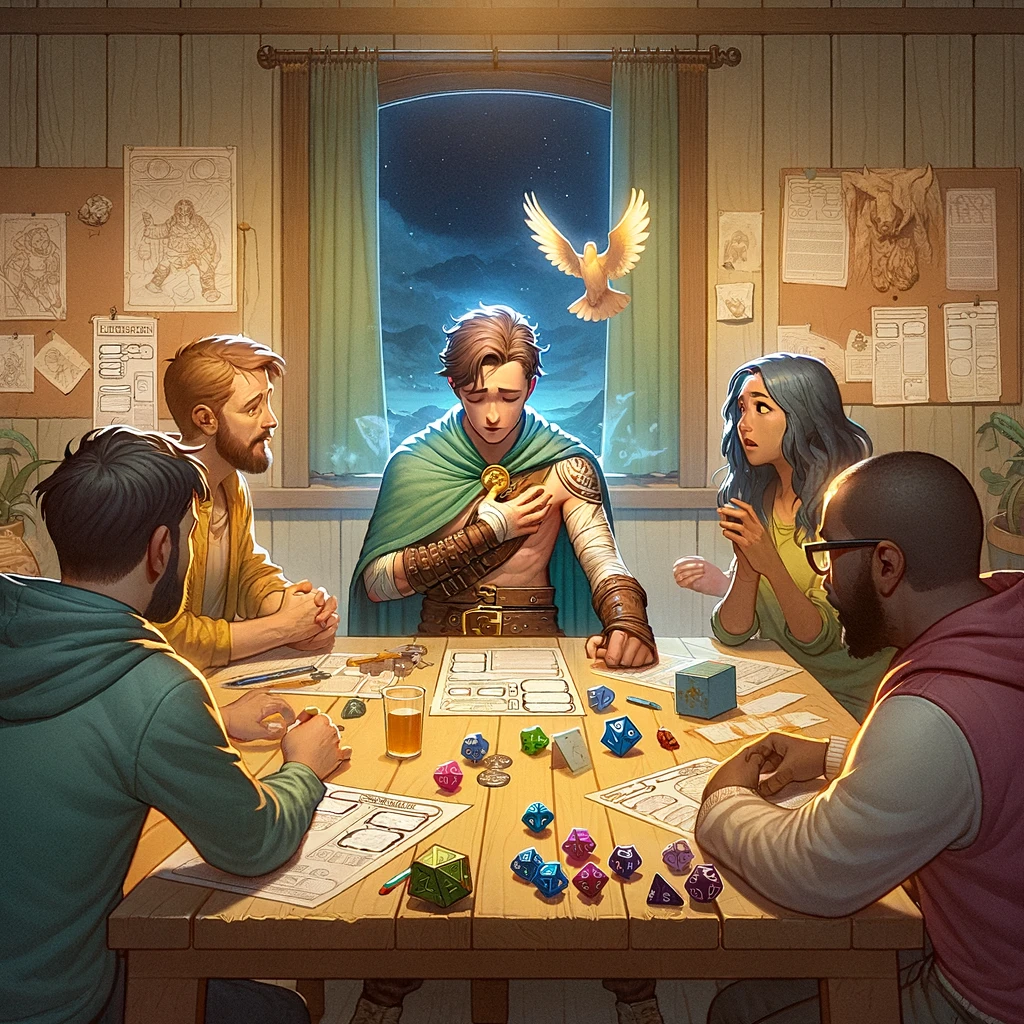
In D&D, stepping into the shoes of someone entirely different from yourself helps develop a deeper understanding of varied perspectives and challenges. This role-playing aspect encourages players to think and feel what others might, promoting empathy and compassion in real-world interactions.
Lesson #2: Teamwork and Diversity are Key to Success
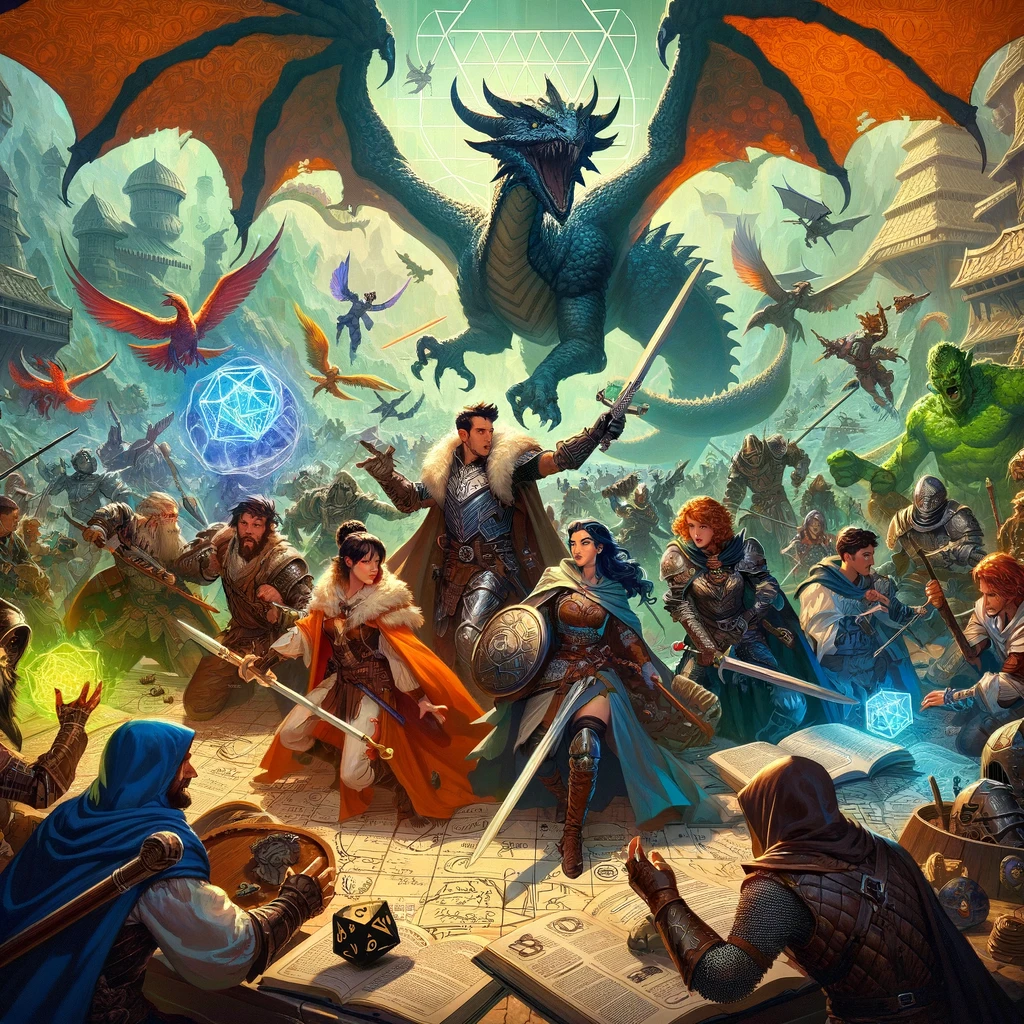
Success in D&D often hinges on the ability of a group to work together, utilizing the unique skills, backgrounds, and perspectives each player brings to the table. This diversity in teamwork not only enriches the gaming experience but also mirrors the importance of collaboration and inclusivity in achieving common goals in everyday life.
Lesson #3: Effective Communication and Active Listening
For a D&D campaign to run smoothly, players must communicate their ideas clearly and listen attentively to others. This practice of expressing thoughts effectively and giving full attention when others speak is crucial for resolving conflicts and building strong relationships, both in the game and in real life.
Lesson #4: Building Relationships
Through shared adventures and challenges, D&D players often form lasting bonds. These relationships, built on trust and mutual support, underscore the value of connecting with others on meaningful levels, highlighting the importance of camaraderie and friendship in our lives.
Lesson #5: The Power of Inclusivity
D&D champions the idea that everyone has a place at the table, regardless of background or experience level. This commitment to inclusivity not only enriches the game by bringing a variety of perspectives to the forefront but also teaches players the value of embracing diversity in all areas of life.
Lesson #6: Leadership Opportunities
In D&D, anyone can step up to lead, regardless of their character’s level or class. This teaches that leadership is not about position but about action and decision-making, encouraging players to take initiative and lead in their communities and workplaces.
Lesson #7: Learning to Lead and Follow
The dynamic nature of D&D allows players to experience both leading and following, providing valuable lessons in flexibility, understanding the strengths of others, and the importance of supporting leadership for the greater good of the team.
Lesson #8: Learning from Failure and Building Resilience
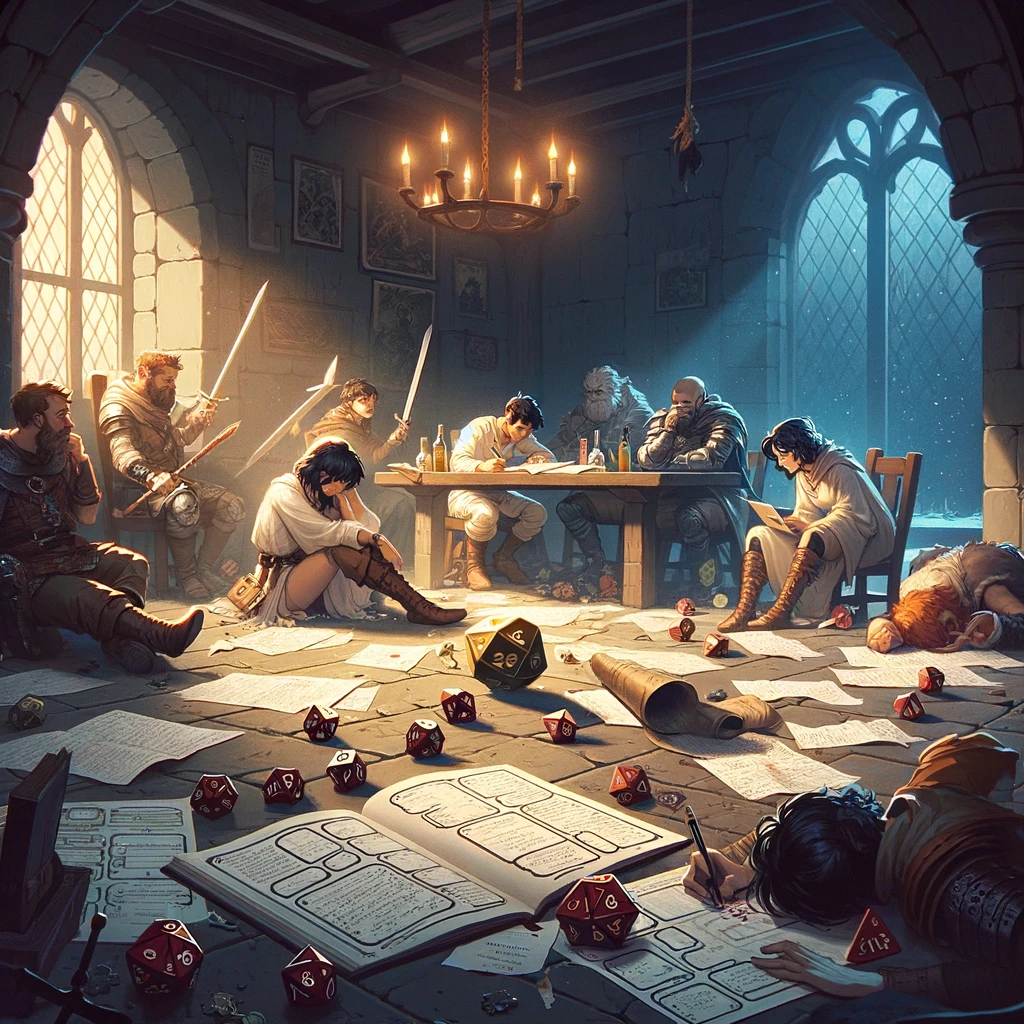
Failures in D&D, such as losing a character or a quest, are not endpoints but opportunities for growth. They teach players to rethink strategies and persist, fostering resilience that helps tackle challenges and setbacks in real life with a positive attitude.
Lesson #9: The Importance of Balance
D&D requires players to juggle various aspects of their characters’ lives, from adventure and combat to downtime activities. This balancing act mirrors the real-world need to manage different areas of our lives, emphasizing the importance of a well-rounded approach to personal and professional challenges.
Lesson #10: Patience and Dedication
Engaging in lengthy D&D campaigns requires patience and dedication, virtues that are equally valuable outside the game. This commitment to seeing things through, even when the end goal seems distant, is a powerful lesson in perseverance and dedication to one’s pursuits.
Lesson #11: Cultivating Patience
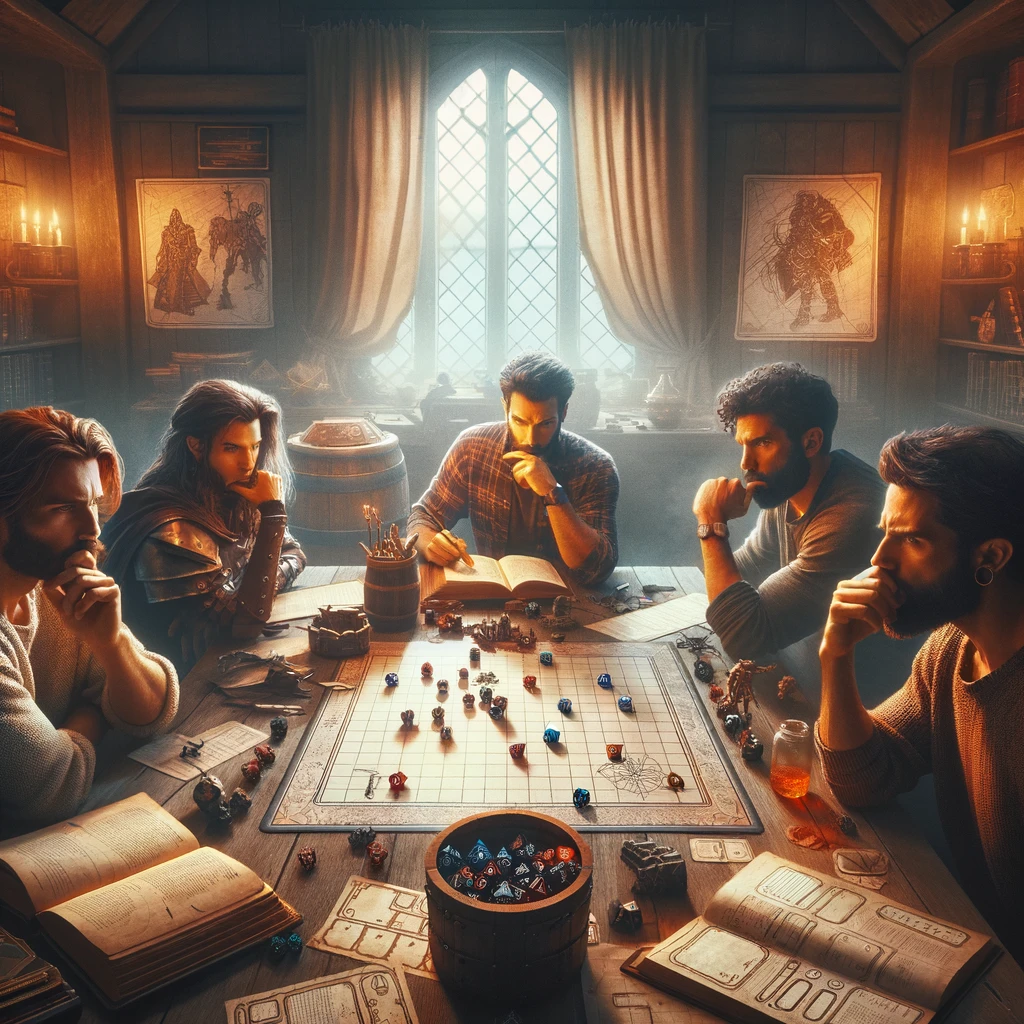
In D&D, not every obstacle can be overcome instantly. Waiting for the right moment to act or for a plan to unfold teaches players the value of patience. This skill is crucial in real life, where immediate results are not always possible, and persistence can lead to greater achievements.
Lesson #12: Resource Management
Effectively managing limited resources such as spells and equipment in D&D mirrors the real-world skill of resource management. Players learn to make strategic choices about when and how to use their assets, a lesson directly applicable to managing time, money, and energy in everyday life.
Lesson #13: Financial Planning
By managing in-game wealth, players gain insights into financial planning and investment. This aspect of D&D teaches the importance of saving for future needs, allocating resources wisely, and the impact of financial decisions, preparing players for similar financial responsibilities outside the game.
Lesson #14: Risk and Reward
D&D challenges players to weigh the potential risks against possible rewards, fostering the ability to make calculated decisions. This skill is invaluable in real life, where every choice comes with its own set of risks and benefits, and learning to balance these can lead to success.
Lesson #15: Respect for Rules and Flexibility
While D&D has a core set of rules, the game’s flexibility allows for creative problem-solving within those boundaries. This teaches players the importance of respecting structures while also being adaptable, a balance that is crucial in personal and professional environments.
Lesson #16: Continuous Learning and Exploration
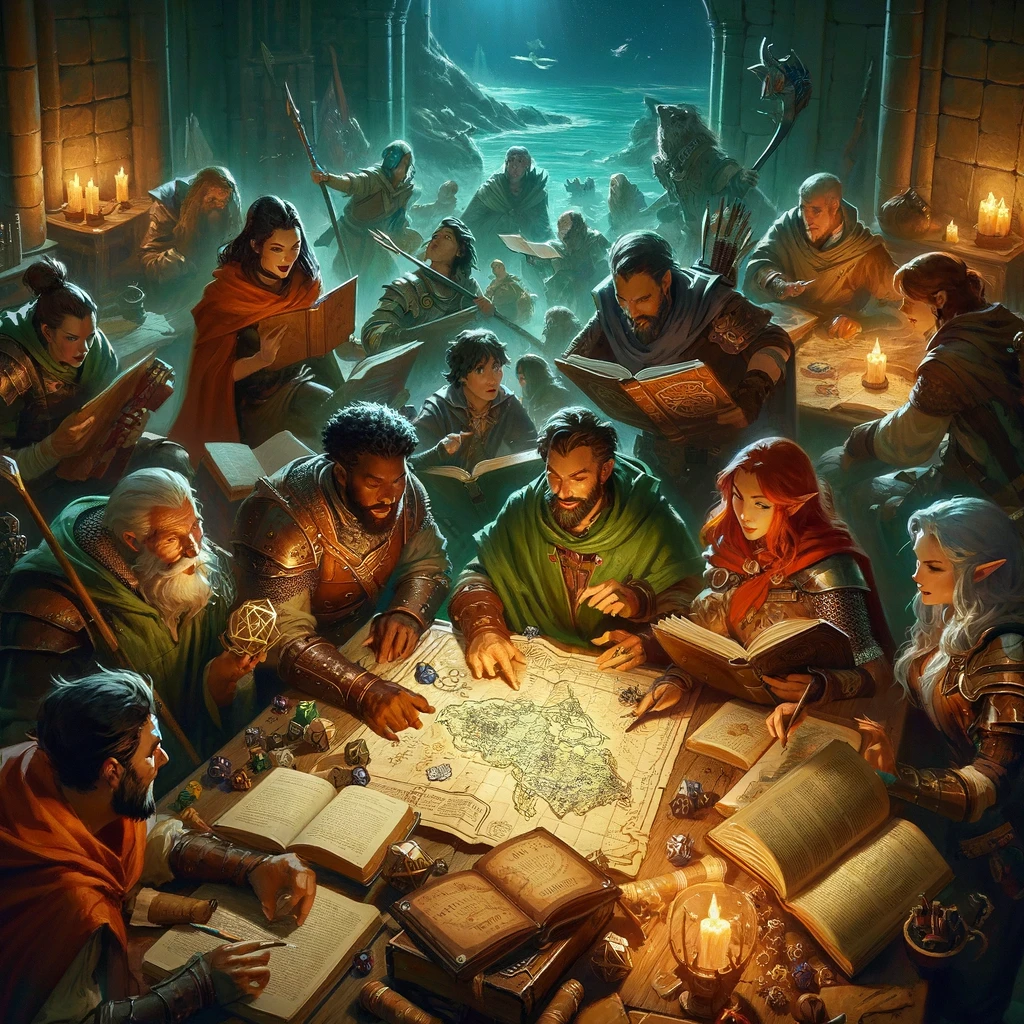
The ever-evolving world of D&D encourages players to continually learn and explore, whether it’s new game mechanics, worlds, or storylines. This mirrors the lifelong learning process in the real world, where curiosity and the pursuit of knowledge lead to personal growth and understanding.
Lesson #17: Problem-Solving Skills
Confronting challenges in D&D requires critical thinking and problem-solving, as players devise strategies to overcome obstacles. These situations improve players’ ability to analyze problems and find solutions, a skill that is highly beneficial in navigating life’s challenges.
Lesson #18: Creativity Unleashed
D&D’s open-ended gameplay fosters creativity, as players imagine new solutions to problems and unique approaches to challenges. This encouragement to think creatively leads to innovative outcomes in the game and inspires a similar approach to obstacles and opportunities in real life.
Lesson #19: The Power of Storytelling

Engaging in D&D’s storytelling deepens imagination and enhances communication skills, as players narrate their characters’ journeys. This ability to tell compelling stories is not only key to a memorable D&D experience but also enhances personal and professional communication by making messages more engaging.
Lesson #20: Enhancing Imagination
D&D’s fantastical settings and scenarios serve as a playground for the imagination, allowing players to envision and create worlds beyond the ordinary. This expansion of the creative mind is invaluable, as it fosters innovation and the ability to envision multiple possibilities in real-world situations.
Lesson #21: Strategic Thinking
Dungeons & Dragons encourages players to think several moves ahead, mirroring the strategic planning required in many real-life situations. Whether it’s deciding the best approach to tackle an enemy or planning a negotiation with a powerful NPC, players enhance their ability to forecast outcomes and prepare accordingly.
Lesson #22: Adapting to Change
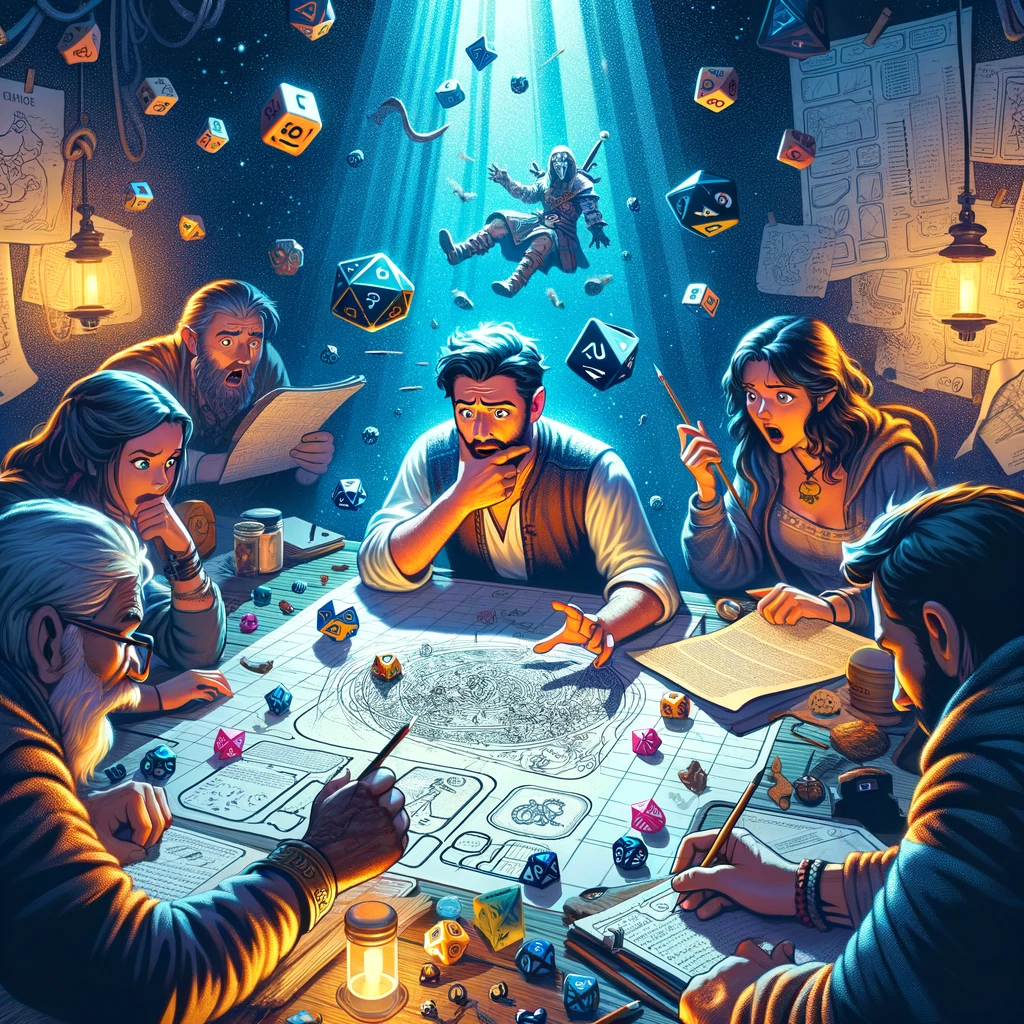
In both D&D and life, situations can change unexpectedly, demanding quick adaptation. Players learn to pivot their strategies and embrace flexibility, a skill that proves invaluable in navigating personal and professional changes or challenges.
Lesson #23: Initiative and Curiosity
By taking the lead in exploring new territories or delving into mysterious plots within the game, players cultivate a sense of initiative and curiosity. This proactive approach to seeking out new experiences and knowledge translates well into a valuable life skill, encouraging lifelong learning and exploration.
Lesson #24: Understanding Roles and Timing
D&D teaches players the importance of recognizing each person’s unique contributions and the critical timing of actions in collaborative efforts. This lesson is directly applicable to teamwork in any context, highlighting how understanding and valuing everyone’s role leads to greater collective success.
Lesson #25: Self-Expression and Personal Growth
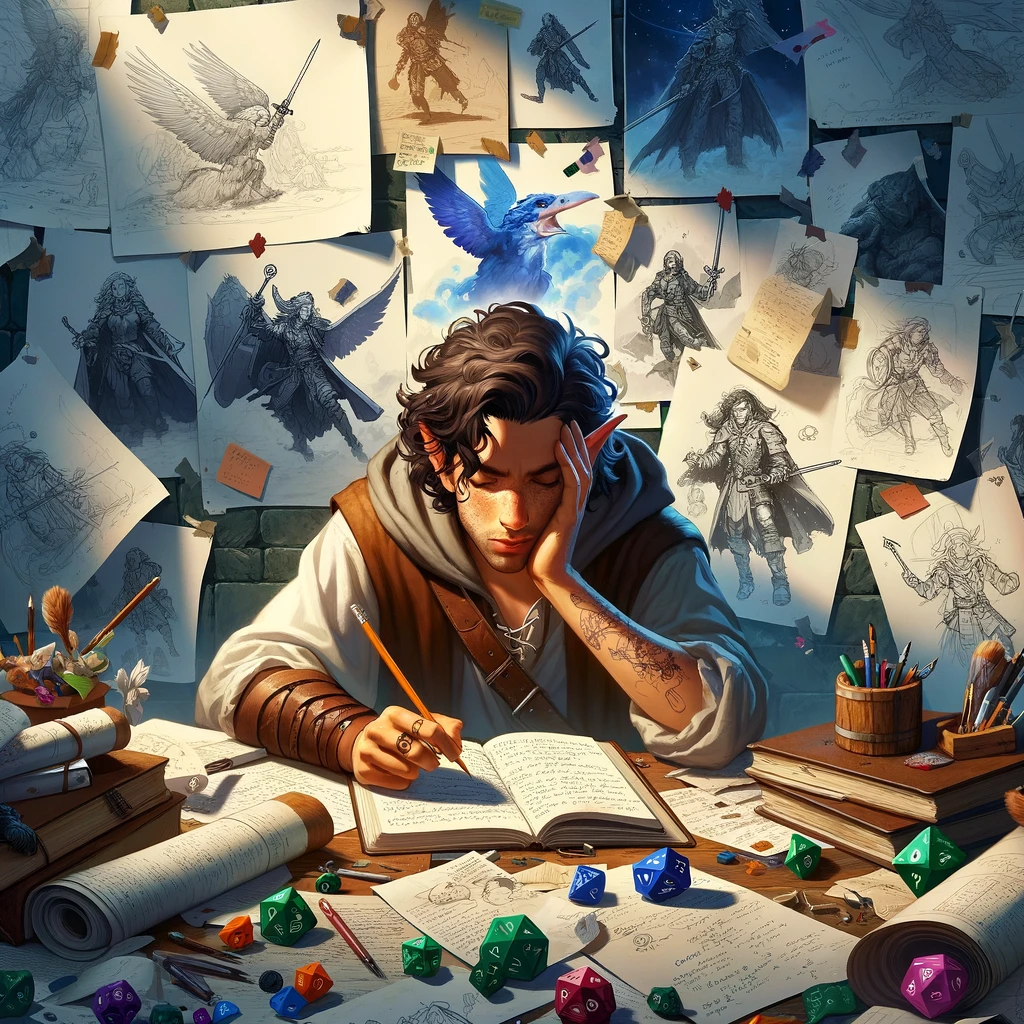
Creating characters and crafting their stories in D&D serves as a powerful medium for self-expression and personal exploration. Players have the opportunity to explore aspects of their identity in a safe and creative environment, facilitating personal growth and self-understanding.
Lesson #26: The Value of Uniqueness and Enjoying the Journey
The game celebrates the individual strengths of each character, teaching players to value their unique abilities and contributions. Emphasizing that the journey is as important as the destination, D&D encourages players to find joy in the experience and growth that comes from the adventure, not just the outcome.
Lesson #27: Importance of Choice
Every choice in D&D can lead to vastly different outcomes, demonstrating the real-life principle that our decisions have weight and consequences. This teaches players to consider their actions carefully and to understand the impact of their choices on themselves and others.
Lesson #28: Ethical Decision-Making
Players often face moral dilemmas in D&D that challenge their values and ethics, mirroring complex real-world decisions. Through these scenarios, players learn to navigate ethical considerations, reflecting on what they stand for and how to make choices that align with their morals.
Lesson #29: Conflict Resolution
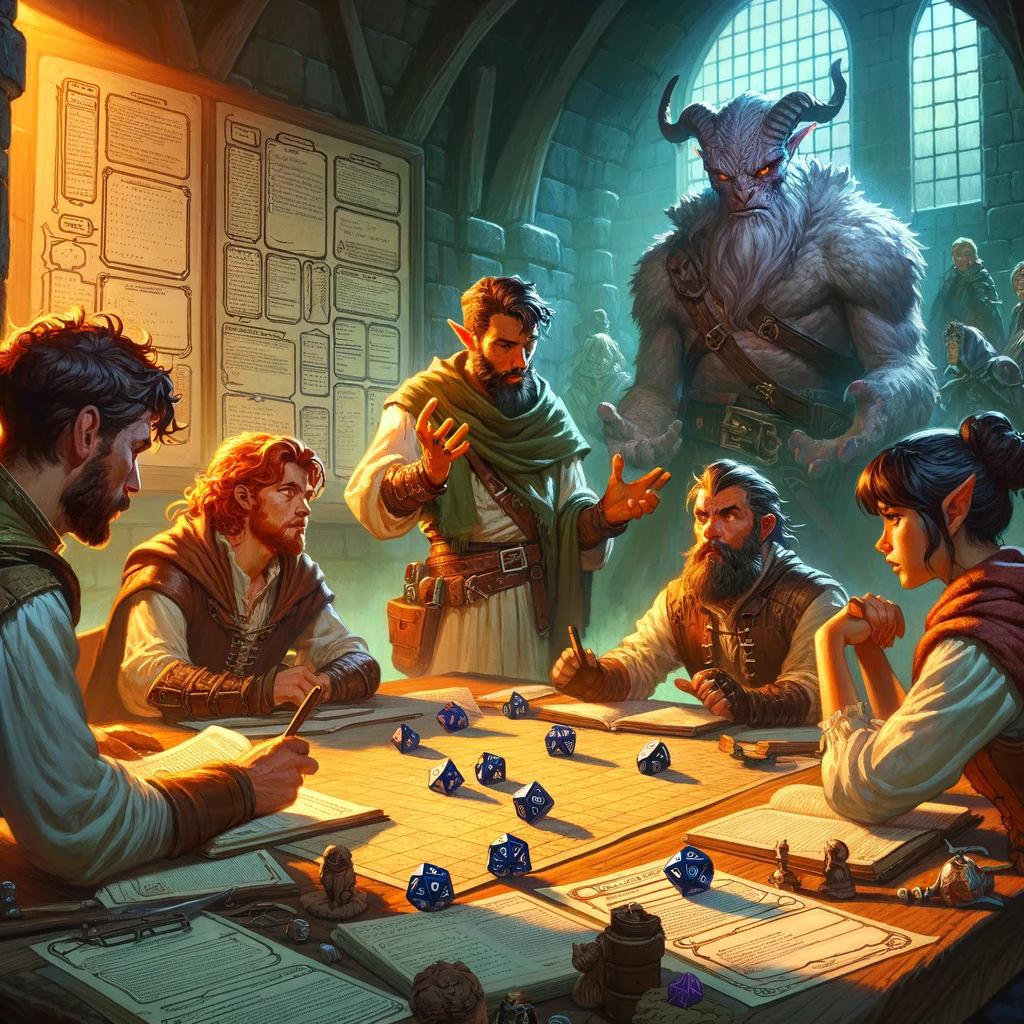
The game provides a framework for resolving conflicts in a structured yet creative manner, whether through diplomacy, negotiation, or combat. These experiences teach players effective conflict-resolution skills, emphasizing the importance of finding peaceful solutions where possible.
Lesson #30: Handling Pressure
High-stakes situations in D&D require players to make decisions under pressure, preparing them to manage stress and maintain composure in critical moments. This ability to stay calm and think clearly when faced with pressure is a valuable skill in any high-stress situation.
Lesson #31: Learning to Cooperate with Different Personalities
Dungeons & Dragons brings together players with varied personalities, each contributing to the team in unique ways. This diversity requires cooperation and understanding, teaching players the importance of valuing different perspectives and working harmoniously in a team, a skill that is crucial in both personal and professional life.
Lesson #32: Coping with Loss
In D&D, players often face setbacks, such as character deaths or failed quests. These moments teach players how to cope with loss and disappointment, reinforcing the idea that failure is a part of life and growth. Learning to move forward after a setback builds resilience, preparing players for inevitable challenges outside the game.
Lesson #33: Celebrating Successes
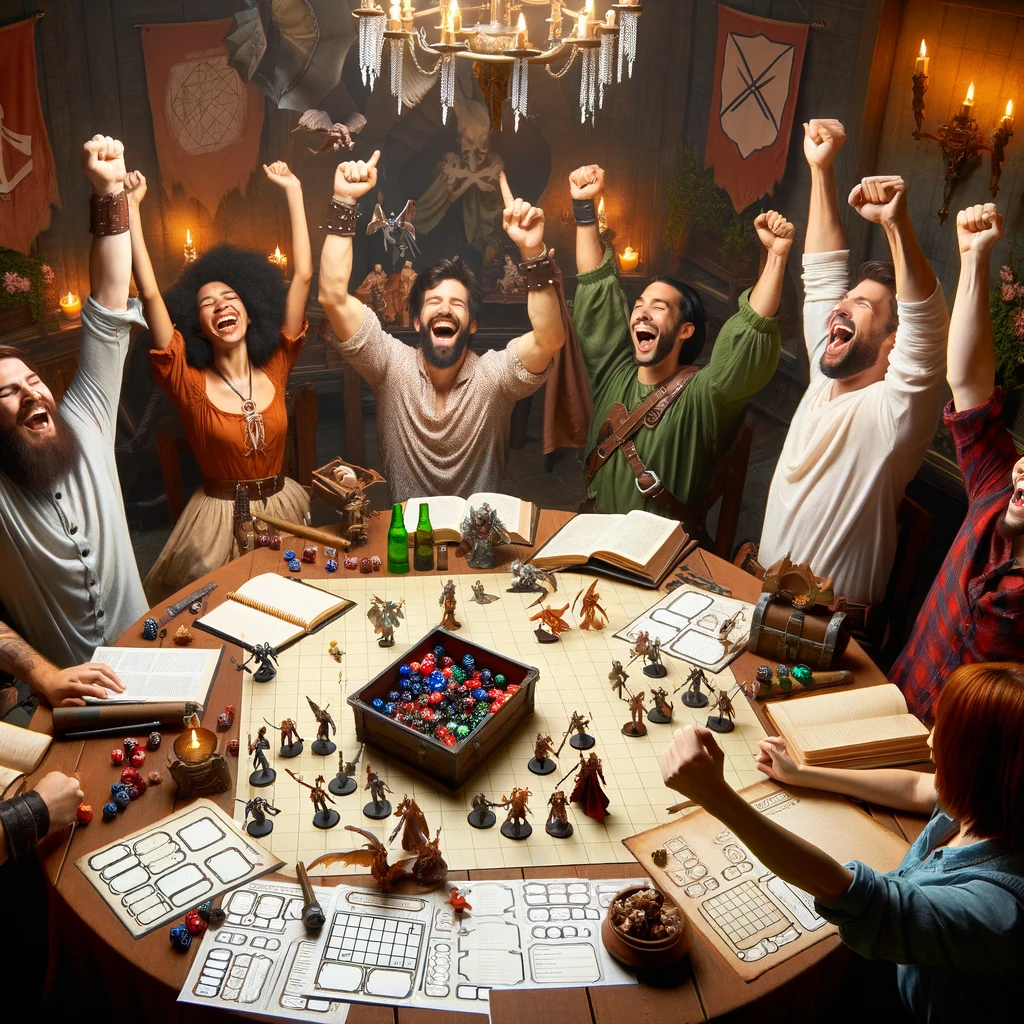
Victories in D&D, whether big or small, are celebrated by the group, fostering a sense of achievement and camaraderie. This shared joy not only enhances the gaming experience but also teaches the importance of recognizing and celebrating successes in life, encouraging a positive outlook and appreciation for one’s accomplishments.
Lesson #34: Navigating Complexities
D&D is filled with complex rules and multifaceted scenarios that challenge players to think critically and adaptively. Navigating these complexities improves problem-solving skills and the ability to manage intricate systems, paralleling the complexities encountered in real-world situations and decision-making.
Lesson #35: Critical Listening
Success in D&D often hinges on the players’ ability to listen to each other and to the Dungeon Master. Critical listening—paying attention to the details in narratives, clues, and the actions of others—enhances comprehension and teamwork, skills that are valuable in all areas of communication and relationship-building.
Lesson #36: Embracing Different Perspectives
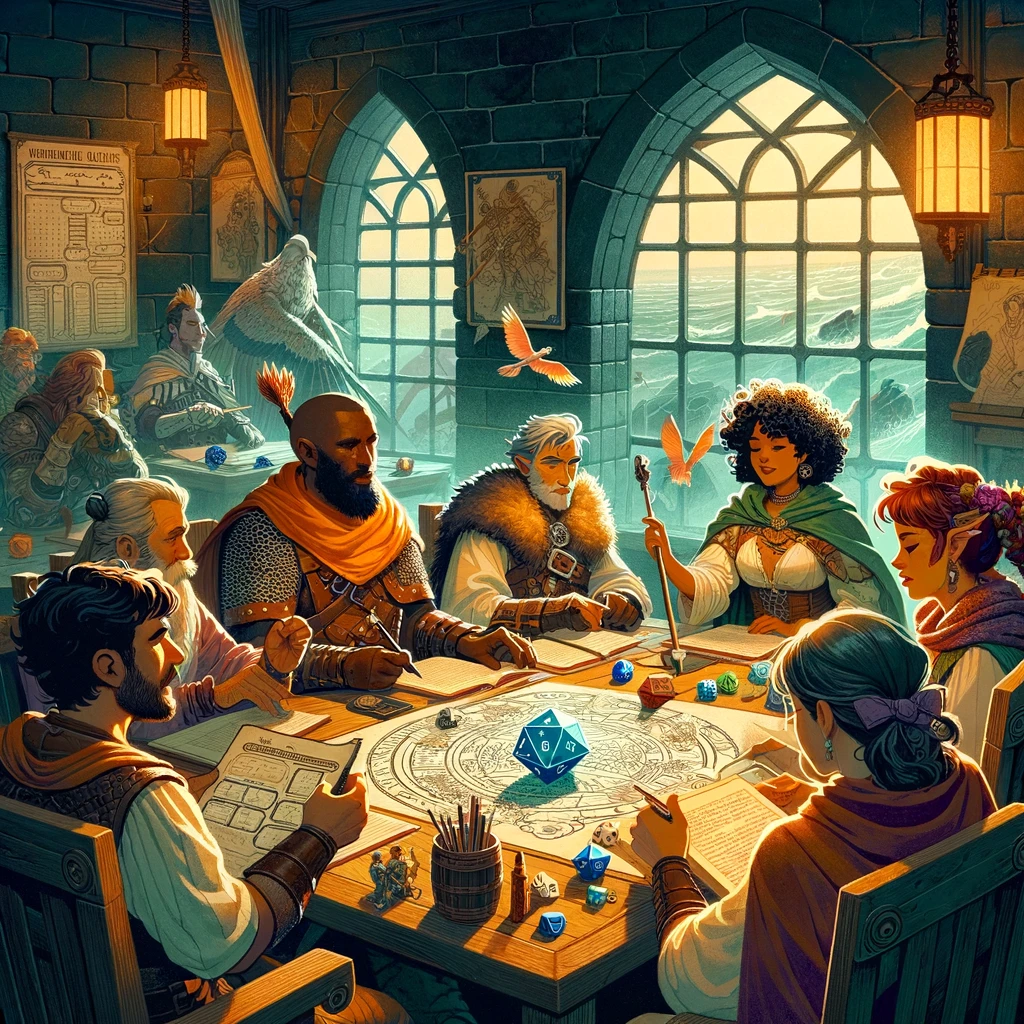
Role-playing different characters allows players to see the world through someone else’s eyes, fostering empathy and an understanding of diverse perspectives. This practice encourages openness to new ideas and ways of thinking, a valuable approach to interactions and problem-solving in a multicultural and diverse society.
Lesson #37: Building Confidence in Public Speaking
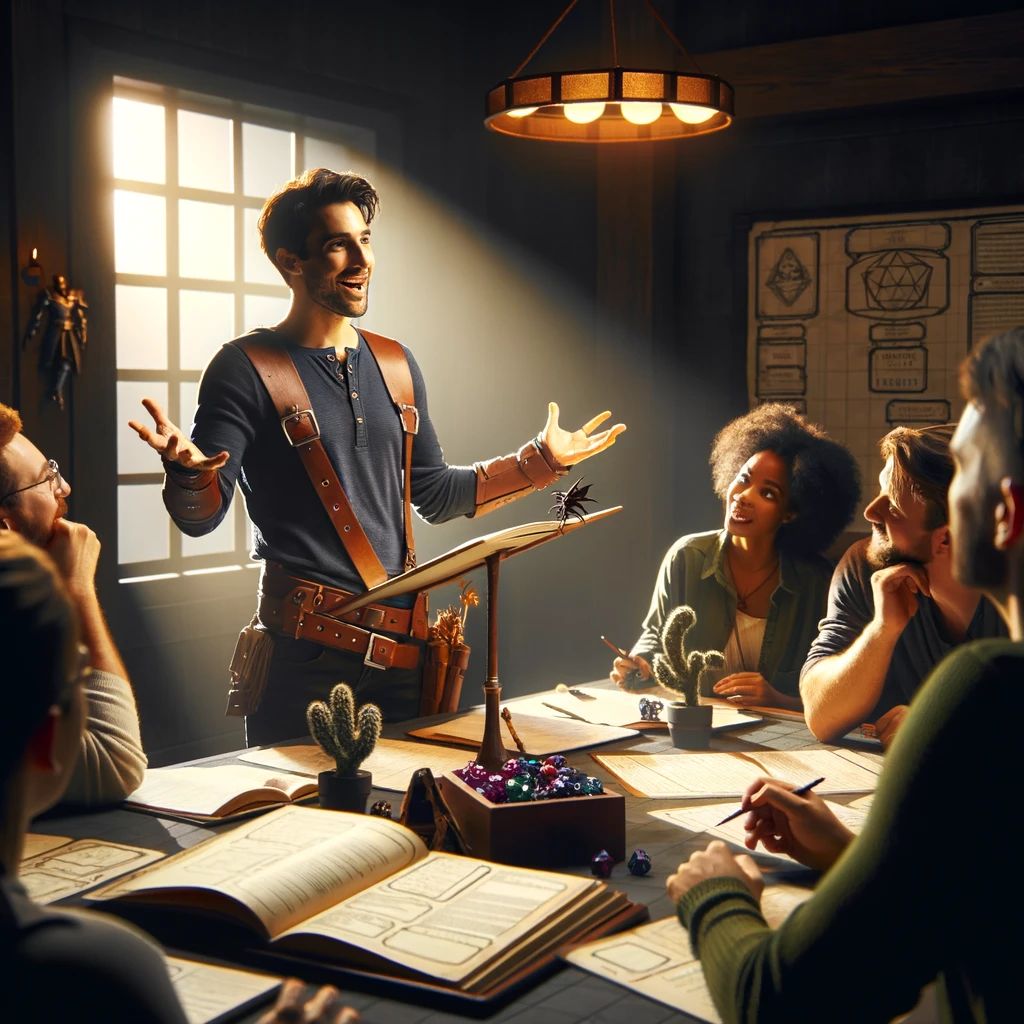
Character dialogues and narrative storytelling in D&D require players to speak up and share their ideas, often in creative and engaging ways. This practice builds confidence in public speaking and storytelling, enhancing communication skills that are essential for effective expression and leadership in various settings.
Lesson #38: Understanding the Value of Silence
In D&D, knowing when to speak and when to remain silent can be crucial for the strategy and development of the plot. This teaches players the value of restraint and timing, showing that sometimes silence can be a powerful tool in communication and decision-making.
Lesson #39: The Importance of Hobbies
D&D exemplifies how engaging in hobbies can provide relaxation, enjoyment, and a break from the stresses of daily life. It highlights the importance of having activities that foster creativity, social connections, and personal fulfillment, contributing to overall well-being and life satisfaction.
Lesson #40: Attention to Detail
Paying attention to small details in D&D can mean the difference between success and failure. This focus on detail trains players to observe and analyze their environments closely, a skill that enhances critical thinking and awareness in everyday tasks and professional endeavors.
Lesson #41: The Value of Mentorship
In D&D, experienced players guiding newcomers not only enriches the game for everyone but also exemplifies the broader value of mentorship. It highlights how sharing knowledge and experiences can facilitate learning, foster growth, and build confidence, echoing the importance of mentorship in personal development and career advancement.
Lesson #42: Acceptance of Different Narratives
The diverse storylines in D&D encourage players to open their minds to different viewpoints and narratives, promoting a culture of acceptance and understanding. This receptiveness to various perspectives enriches personal experiences and fosters a more inclusive approach to the world around us.
Lesson #43: The Importance of a Shared Experience
Engaging in shared adventures in D&D creates a strong sense of community and belonging among players. This shared experience strengthens bonds, builds lasting friendships, and demonstrates the value of collective experiences in forming deep connections with others.
Lesson #44: Understanding the Impact of Actions on Others
Through gameplay, D&D players learn that their decisions have consequences not just for their characters but for the entire group and the game world. This lesson underlines the significance of considering the broader effects of our actions on others and our communities, encouraging more thoughtful and responsible behavior.
Lesson #45: Valuing Non-Material Rewards
D&D highlights the value of non-material gains, such as the joy of shared experiences, personal growth, and the development of skills. These intangible rewards often surpass material gains in their lasting impact on our well-being and happiness, reminding us to cherish and seek out these meaningful achievements in life.
Lesson #46: Facing Fears
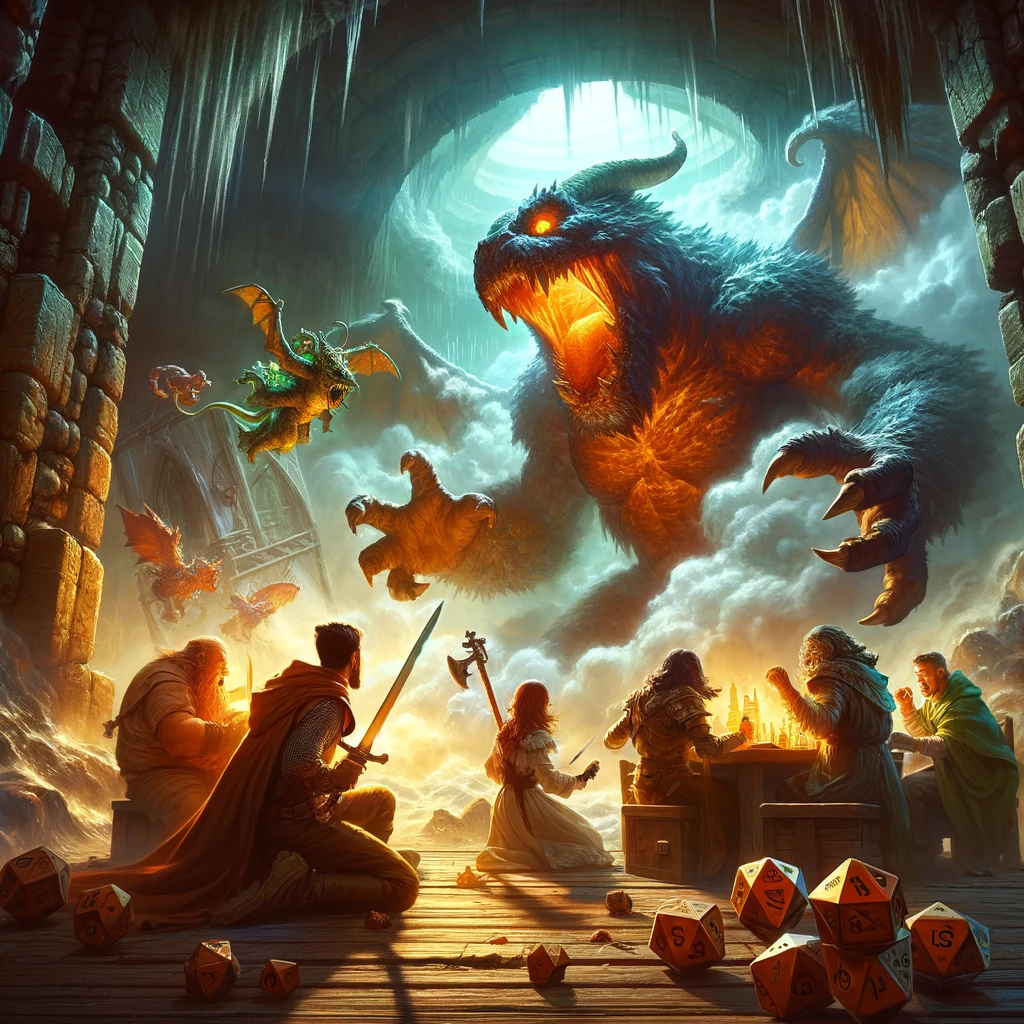
Confronting fears within the safe confines of the game allows players to practice courage and resilience, empowering them to face real-life fears with similar bravery. D&D acts as a rehearsal space for personal challenges, proving that overcoming fears can lead to growth and newfound confidence.
Lesson #47: Setting Boundaries
D&D teaches the importance of establishing clear boundaries, whether in the context of gameplay or interpersonal interactions. Learning to communicate and respect these boundaries is crucial for healthy relationships and personal well-being, reflecting the need for boundary setting in everyday life.
Lesson #48: The Importance of Preparation and Research
Success in D&D often comes down to how well players prepare and research, mirroring the value of these skills in achieving real-world goals. This lesson emphasizes the importance of diligence, foresight, and the acquisition of knowledge as foundations for success in any endeavor.
Lesson #49: Learning to Celebrate Others’ Successes
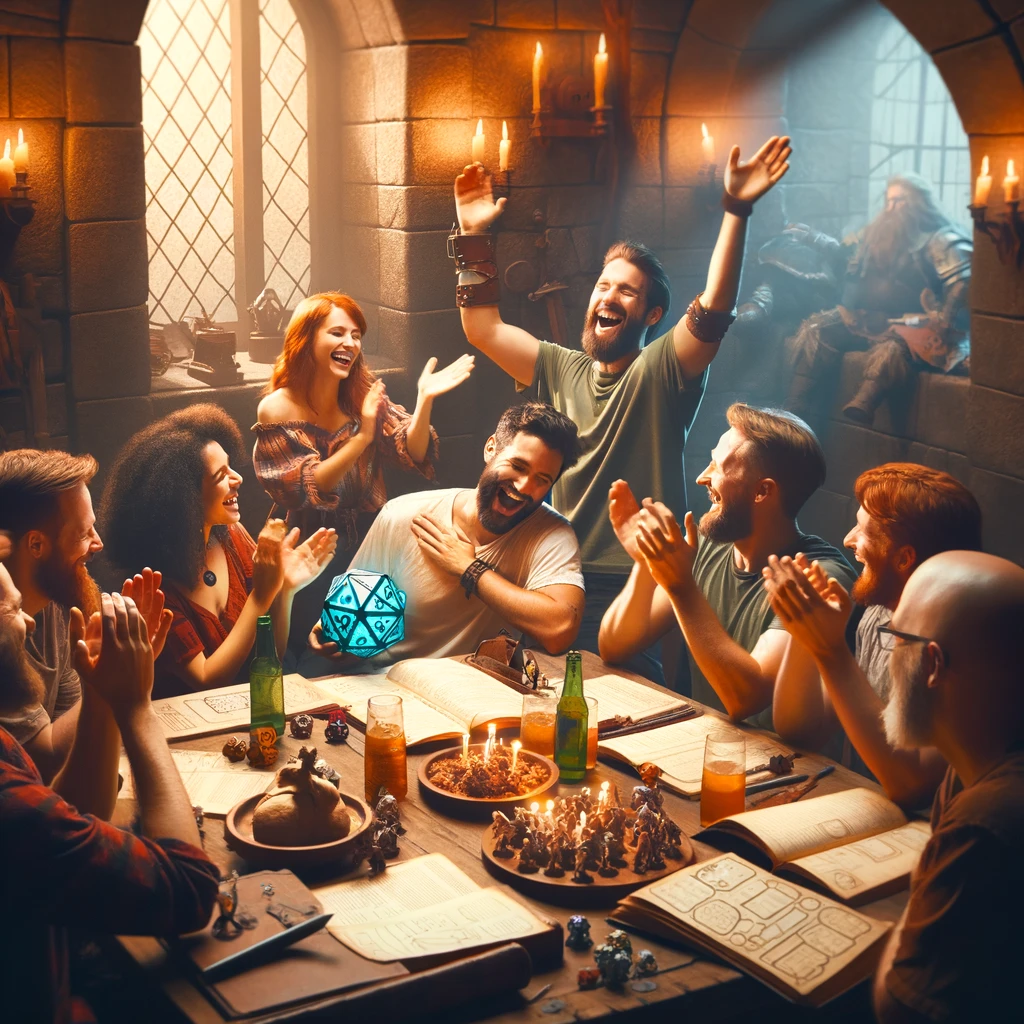
Recognizing and celebrating the achievements of fellow players in D&D fosters a supportive and positive environment. This practice nurtures a culture of appreciation and mutual respect, vital for building team spirit and enhancing personal relationships.
Lesson #50: Cultural Appreciation

The diverse settings and cultures represented in D&D encourage players to explore and appreciate the richness of different cultures and histories. This appreciation fosters a more open and inclusive worldview, highlighting the beauty and value of cultural diversity in our global community.
What Have You Learned from Playing D&D?
As we celebrate the remarkable milestone of 50 years of immersive gaming in Dungeons & Dragons, we’ve explored just a handful of the countless life lessons this beloved game has taught us. From empathy and teamwork to facing fears and appreciating cultural diversity, D&D is more than just a game; it’s a journey into the depths of our imagination, values, and personal growth. But the adventure doesn’t end here. We want to hear from you! What life lessons have you learned from your experiences with D&D? How has the game influenced your perspective on life, relationships, or personal challenges? Share your stories with us on our X/Twitter page @gnomishplays. Join the conversation and let’s celebrate the infinite worlds of wisdom found within the realms of Dungeons & Dragons together.


